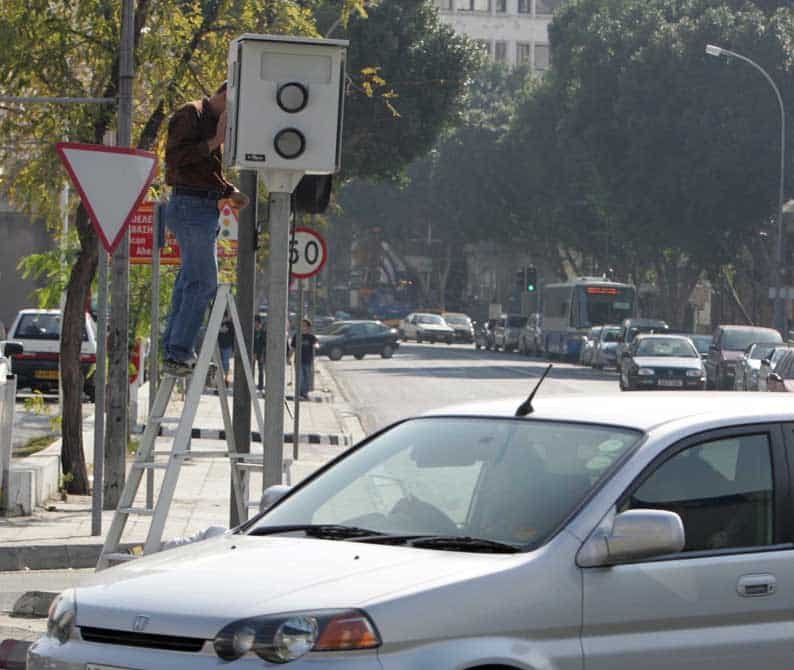All traffic cameras currently installed have passed the piloting phase and are in full operation, while a second phase is underway that will see the installation of 66 additional cameras, head of the electromechanical services said on Tuesday.
The initial installations were prioritised after police studies determined the location of “black spots” categorised as such for having record levels of collisions and fatal accidents, Marcos Marcou told CyBC radio.
“We have covered the most dangerous spots,” he added, saying that four new installations were currently being piloted in Larnaca.
The director admitted that the system, so far, homes in on “black spots” within cities, not on the motorways, which continue to be monitored through mobile camera vans.
Addressing complaints by drivers of unfair fines due to “hidden” vans and flash-happy automatic cameras, the director said some drivers’ concerns had been taken into consideration and others had been dismissed.
As far as “hidden” vans, the director maintained that this was an imaginary assertion.
“The cameras of the van must be visible otherwise it cannot record violators,” Marcou explained. It is possible that a Brinks van – the company that operates the cameras – may be temporarily parked at a hard-to-see spot when the employee is on break, Marcou suggested. “During this time the camera cannot record violations,” he said.
As for other gripes by commuters, notably about stop line and green arrow turn violations issued too eagerly, Marcou explained that the stop line threshold has been adjusted following complaints.
The green arrow violation has also been adjusted with a longer grace period given for drivers to move out of the violation zone once the arrow fades, and applies mainly to cross-roads with pedestrian crossings, Marcou said.
Other fines, such as mobile phone use, seat belt use and helmet use while driving, are only issued on top of speeding, stop line or red light violations, when footage of the incident is examined, Marcou clarified.
To date the director said, 400,000 fines have been recorded in total since the system’s introduction in 2022. Of these 112,000 are for speeding, 18,000 for stop line violations, 700 for mobile phone use, 150 for driving without holding the wheel, 250 for non-use of a seatbelt, and 30 for non-use of helmet.
The ministry of transport is expected to soon announce its total revenues from the system’s implementation.







Click here to change your cookie preferences